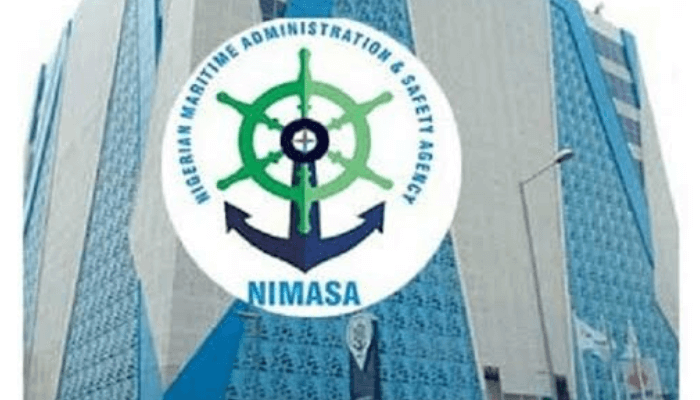The Nigerian Maritime Administration and Safety Agency (NIMASA) has intensified efforts to attract private sector participation as part of a broader strategy to boost the country’s marine and blue economy. The agency, in line with the federal government’s vision of diversifying revenue sources and strengthening non-oil sectors, has outlined new initiatives to unlock investment opportunities across shipping, port infrastructure, shipbuilding, fisheries, and related maritime services.
NIMASA’s push comes at a time when Nigeria is seeking alternative revenue streams to reduce dependence on oil, which has historically dominated government income. The marine and blue economy—spanning fisheries, transport, offshore energy, coastal tourism, logistics, and marine biotechnology—is globally recognized as a trillion-dollar industry. Nigeria, with its expansive coastline and inland waterways, has the potential to harness significant value from this sector if investments are properly mobilized.

Speaking during a stakeholders’ meeting on maritime investment, NIMASA officials stressed the importance of leveraging private capital to bridge the infrastructure and capacity gaps stalling the growth of the marine economy. They argued that government resources alone are insufficient to build modern ports, shipyards, and fishing facilities, or to provide efficient maritime training institutions. Encouraging private players to take up these roles, according to the agency, will stimulate job creation, generate foreign exchange, and strengthen national competitiveness.
NIMASA has already embarked on regulatory reforms to ease business operations within the maritime space. These reforms aim to improve transparency, streamline licensing procedures, and ensure that investors can operate within a predictable legal framework. The agency emphasized that investor confidence depends heavily on strong governance and the consistent application of maritime laws.
The push for private investment is also linked to Nigeria’s ambition of becoming a regional maritime hub. Currently, many vessels operating in West Africa prefer ports in neighboring countries such as Ghana, Togo, and Côte d’Ivoire due to concerns over delays, security, and port inefficiencies in Nigeria. By upgrading infrastructure and improving service delivery through public-private partnerships, NIMASA hopes to reverse this trend and retain more maritime traffic within Nigerian ports.
Security on Nigeria’s waters remains a central concern. The Gulf of Guinea, which Nigeria dominates geographically, has long been a hotspot for piracy and illegal maritime activities. NIMASA highlighted its Deep Blue Project, a multi-agency initiative designed to enhance surveillance, intelligence gathering, and rapid response to security threats. Officials assured investors that improved safety measures will protect assets and crew, thereby creating a safer operating environment for maritime business.
Industry experts agree that maritime security is a decisive factor for unlocking private capital. Without reliable protection, potential investors in shipping, offshore exploration, or fisheries could hesitate. NIMASA’s efforts, therefore, are not just about regulatory adjustments but also about making Nigeria’s waters more secure and attractive for global commerce.
The blue economy also holds significant promise in sustainable development. NIMASA emphasized the importance of environmentally responsible practices, especially in fisheries and coastal tourism. Overfishing, pollution, and habitat destruction remain pressing challenges, but private investment in sustainable aquaculture, eco-friendly tourism, and renewable marine energy could transform these challenges into opportunities.
Local players in shipbuilding and ship repair have also been encouraged to scale up operations. Nigeria currently relies heavily on foreign yards for repairs and construction, leading to capital flight. With adequate investment, supported by favorable policies, the local shipbuilding sector could thrive, creating jobs for engineers, technicians, and artisans.
To attract private capital, NIMASA is collaborating with financial institutions and international development partners. The goal is to design funding frameworks, risk guarantees, and credit facilities that can incentivize investment in high-cost maritime projects. Access to long-term financing, the agency noted, is critical for entrepreneurs seeking to invest in shipping lines, cargo terminals, or inland waterway transportation.
Furthermore, NIMASA has been engaging state governments, recognizing that the marine economy cuts across multiple regions. By encouraging coastal and riverine states to partner with private firms, the agency believes Nigeria can expand its maritime value chain beyond Lagos, currently the dominant hub. Developing smaller ports and inland jetties, for example, would open up trade routes and reduce pressure on existing port facilities.
Stakeholders, including members of the organized private sector, expressed support for NIMASA’s initiatives but cautioned that consistency in policy implementation remains vital. Investors, they said, need assurance that rules will not shift unpredictably or that political changes will not derail established agreements.
The emphasis on private investment in the maritime space also ties into Nigeria’s broader job creation strategy. With unemployment and underemployment remaining persistent, the blue economy offers thousands of potential roles, from logistics managers and marine engineers to aquaculture specialists and tourism operators. By unlocking these opportunities, NIMASA hopes to contribute meaningfully to national economic growth.
The global outlook for the marine and blue economy underscores Nigeria’s urgency. Internationally, the sector is projected to exceed $3 trillion by 2030, driven by sustainable ocean-based industries. Nigeria’s share of this potential depends on its ability to create an investment-friendly ecosystem and address long-standing structural issues.
In summary, NIMASA’s call for private investment marks a pivotal step in repositioning Nigeria’s maritime industry as a key driver of growth and diversification. By combining regulatory reforms, improved security, and strategic partnerships, the agency aims to unlock the untapped potential of the blue economy. If effectively implemented, this initiative could transform Nigeria’s maritime sector into a hub of innovation, commerce, and sustainable development, ensuring that the nation fully benefits from its vast aquatic resources.
Support InfoStride News' Credible Journalism: Only credible journalism can guarantee a fair, accountable and transparent society, including democracy and government. It involves a lot of efforts and money. We need your support. Click here to Donate
